I also vote in favor of putting a conservative coalition in charge of ruling over the Empire.
The Darkest hour of the Russian Empire 2
- Thread starter unmerged(358653)
- Start date
-
We have updated our Community Code of Conduct. Please read through the new rules for the forum that are an integral part of Paradox Interactive’s User Agreement.
You are using an out of date browser. It may not display this or other websites correctly.
You should upgrade or use an alternative browser.
You should upgrade or use an alternative browser.
I don't think conservatives would come in power. Russia has changed from an absolutist monarchy to a conservative government to a very liberal and modern government. Going to the conservatives would be taking a step back for Russia. Plus the liberals
reconstructed country after the first world war and led it through three very successful(if also very belligerent) wars.
Also the leftist would lose even more support because what they had promised has been accomplished by a less radical government. So due to this I think the liberals would continue their rule for at least one more term if their boat remains steady till the next elections
reconstructed country after the first world war and led it through three very successful(if also very belligerent) wars.
Also the leftist would lose even more support because what they had promised has been accomplished by a less radical government. So due to this I think the liberals would continue their rule for at least one more term if their boat remains steady till the next elections
The Darkest hour of the Russian Empire 2

Chapter One: 1920s
Part VI: For the progress 1927-1929
Part VI: For the progress 1927-1929
1927 began from a great event - on 1 of March all streets, squares and parks of St. Petersburg were crowded. Military orchestras were playing legendary marches, people had flags and portraits in their hands. Foreign diplomats from former Entente bloc were invited too. The Emperor and the Empress together with prime minister Milyukov were the main guests. At 3 p.m. the parade began - straight columns of soldiers, musicians and cavalrymen started marching through the square. Chief of Staff, old general Gurko, was a commander of the parade.
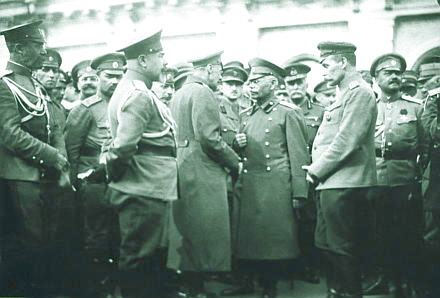
Officers of General Staff waiting for the beginning of the parade
The parade was in honor of field marshal Brusilov, who died in 1926. The Emperor personally signed a manifesto, in which one of squares of the capital was called Square of Brusilov. Culmination moment of the parade was a great statue, that was designed by the most skillful sculptors. It was an unusual statue, and when the monument was officially announced, the Emperor had a speech in front of it. Thousands of people put their flowers to the basement of the statue. Brusilov was in their hearts like The Men Who Saved Russia. War minister general Kornilov said, that Brusilov was the best commander of the Great War. The crowds hoorayed those words.
In April the Chinese civil war was close to the end (nevertheless different warlord cliques were still very strong) - a popular military leader called Chiang Kai-shek captured Nanking with his Kuomintang forces. A new leader of China was an interesting person, who wanted to have diplomatic connections with both Russians and British.
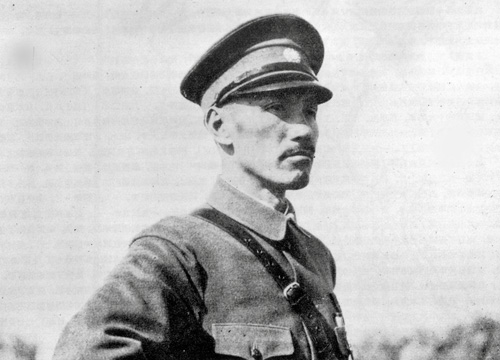
New ruler of Chinese giant
In July of 1927 a threat of National-Socialism spread into Austria, where Austrian Nazi-supported parties and organizations began to appear. On 15 of July nationalists and communists provoked street massacres and street protests. Austria was going to become as dangerous as Germany...
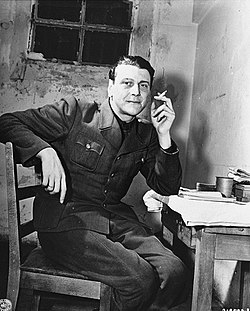
This guy (called Otto Skorzeny) as a member of pro-Nazi "Academic Legion" participated in street fights
On 10 of December Vladimir Zvorykin won physics Nobel Prize for his successes in television and electrical devices. It was a great news for the Russian society.

A brilliant engineer at work
In February of 1928 the United Kingdom created a mandate in Transjordan to control these territories easier and safer.

Mandate's map
On 13 of April American Secretary of State Frank Kellogg suggested subscribing of a disarmament treaty to all Great Powers. In theory, it was a step to prevent global wars, but practically Russia, Britain, France, Japan and the USA would never accept such a proposal - each country had national interests and had to have strong, powerful armies and navies. Emperor Nicholas II was known as a man of piece (Conference in Hague where chemical weapons usage was restricted was his initiative), but he denied the treaty as well as any other world leaders. Kellog's plan was rejected.

New model of legendary Mosin rifle from Tula weapons' factory. According to Kellogg, such projects should be stopped.
On 3 of May after desperate fighting against Kuomintang forces, the Japanese occupied Shandong peninsula, a great naval and military strategic base for the Japanese army. Imperialist plans of the Empire were easy to predict...
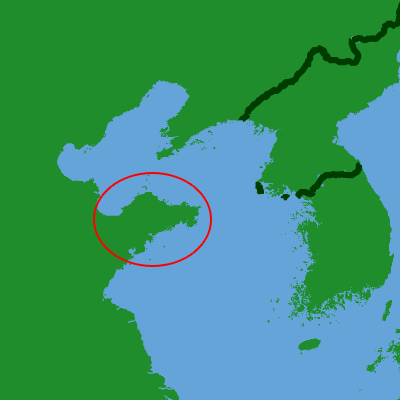
Shandong peninsula
On 17 of May summer Olympic in Amsterdam began. Russian athletes showed good results, finishing on the 3rd place with 9 golden, 9 silver and 9 bronze medals. The USA with 22-18-16 score were the first, while Weimar Republic won 10-7-14 and was the second one. Main opponent of the Russian team, the UK, took only 11th place with 3-10-7 - it was a shame for the English sport.
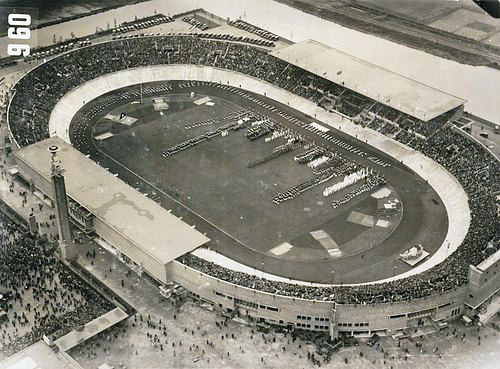
Olympic stadium of Amsterdam
In June Hindenburg appointed a new Chancellor of Germany. Hermann Muller from Social-Democratic party became a new head of government of the Weimar republic. Everybody considered him as quite weak politician...

Muller, the new chancellor
In August the British army invaded Yemen - Yemeni nomads were attacking British convoys and villages in the Arabian peninsula. In the Great War Yemen fought together with the Ottomans, and officially there was no peace treaty with them. The British decided to end that ridiculous situation.
The war lasted for one month, and after that Yemen finally surrendered and became a British protectorate inside of massive colonial administration of British Raj.
So, then 1929 came together with Imperial Parliamentary elections, and those elections became a kind of surprise for Russia and the whole world...
IMPERIAL ELECTIONS OF 1929
Imperial Senate
After successful wars versus Afghanistan, Persia and Weimar republic Russian Imperial Senate got two more places – Middle-Eastern governorate (with key city of Isfahan) and Baltic governorate (with key city of Baltiysk, former Koenigsberg). Upper house was going to be very different to the State DumaResults of the elections:
In Baltiysk elected senator was from LDP, in autocratic and religious Middle East the locals elected a man from KM party. Senators were well-known people and were elected directly from the biggest cities of their provinces, so that made liberal senators more popular, and liberals together with constitutional democrats got majority in 10 governorates, while Octobrists and Monarchists won the elections in Moscow, Bessarabia, Caucasus, Orenburg, Omsk, Constantinople and Middle East, which meant only 7 seats in the upper house. A great surprise was a senator from nationalists, who was elected in Vladivostok. He was Konstantin Rodzaevsky, a very ambitious and charismatic person, who became even more popular than Purishkevich.
Constitutional Democrats - 7/18
Octobrists - 5/18
Liberal-Democratic Party - 3/18
Conservative Monarchists - 2/18
Union of the Russian people – 1/18
State Duma
When the Senate was mainly liberal, the Lower House was going to change a lot. Kadets and LDP gave too much freedom to people who weren’t ready for that. Aggressive propaganda of opposing parties, corruption scandals and low charisma and speaking skills of democratic authorities were a bad advertisement for the ruling coalition
Results of the elections:
In spite of the fact that Liberal coalition did a lot for the Russian Empire, and Milyukov’s term was really beneficial, Kadets didn’t realize that they gave too much freedom to people, which caused their electoral defeat. Octobrists removed unpopular Guchkov and assigned a young capitalist Mikhail Tereschenko to replace him. Tereschenko spent large amounts of money on electoral campaign. On the right flank Conservative Monarchists started losing their electors – SRN, led by talented orators like Purishkevich and Rodzaevsky (who managed to become a senator of Vladivostok), got impressive voting results of 8.9%. Together with successes of Hitler and Mussolini it was looking very dangerous. Kerensky also managed to gain some votes, because LDP voters became more leftist. So, Upper House and Lower House became very different.
Octobrists – 250 (41.6%) (+40 seats)
Constitutional Democrats – 170 (28.3%) (-40 seats)
Union of the Russian people - 53 (8.9%) (+29 seats)
Liberal-Democratic Party - 50 (8.3%) (-20 seats)
Social-Democratic Party - 30 (5%) (+16 seats)
Conservative Monarchists – 27 (4.5%) (-29 seats)
Socialist-Revolutionary Party - 11 (1.9%) (+1 seat)
Mensheviks - 9 (1.5%) (+3 seats)
Head of Government: Octobrist Mikhail Tereschenko
Foreign Minister: Liberal-Democrat Pavel Konovalov
Armaments Minister: Kadet Pavel Ryabushinsky
Minister of Security Conservative Monarchist Alexander Makarov
Head of Intelligence: Octobrist Andrian Nepenin
Army and Navy ministers are appointed directly by the Emperor, all of them are Octobrists.
Leader of Octobrists Mikhail Tereschenko became a new prime minister for five years.
Elections were also held in Britain, where Ramsey McDonald from Labour Party won the elections and formed the new government.

James Ramsey McDonald
On 3 of October Kingdom of Serbs, Croats and Slovens was officially renamed into Yugoslavia, which was supported by the Russian society.

Yugoslavian dinar banknote
Chapter One is finished
To be continued
Waiting for your comments
Next update: December, 24
Last edited:
still no update? its 11:11 in Warsaw and its 22:22 in Kamchatka!
You're so impatient, my friend - it's only 14:19 now in my region
indeed just 8 minutes and i would get it 
hmh so i see more socialists and nationalists... hmh...
hmh so i see more socialists and nationalists... hmh...
I think it should be Imperial Elections of 1929. Anyway the update was well worth the wait. The Extremists' rise seems surprising to me at least
You forgot Poland Caucasus  Actually, I live quite far from Moscow, but my region is in Moscow time zone
Actually, I live quite far from Moscow, but my region is in Moscow time zone 
No, I'm Russian, but Russia is quite big (I'm captain Obvious, you know). I live near Volgograd aka Stalingrad 
I see things are split in power between the Obctobrists-KM Coalition and the Liberal Coalition. Let's hope for their sakes the Great Depression does not harm Russia too terribly.
Well, if Great Depression hits Russia badly we may see a very interesting situation... Perhaps even another revolution like the 1905 one?
Nah. As the US didnt enter WW1, and the Entente won, they really have no conditions to prompt a revolution.
The old Austro Hungarian states however, could provide an interesting place for one to start. Perhaps some sort of "Union of Soviet Socialist Republics of the Danube".
The old Austro Hungarian states however, could provide an interesting place for one to start. Perhaps some sort of "Union of Soviet Socialist Republics of the Danube".








